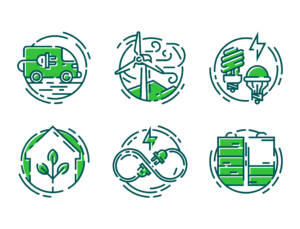Blog Series #3 by Jim Brown
“Hey! It’s the Energy Guy!” said one of the group of teachers walking out of the building. “My lights are off!” exclaimed another. On another day I was greeted with “Hey Mr. Brown, you’d be proud of me. I’ve been making sure the lights are off in the Athletic areas at the high school.” This was from the head baseball coach for our high school.
I have been referred to by many titles – the Energy Police, the Energy Czar, and (my all time favorite) the Prince of Darkness. The truth is that it is not one person, but the actions of each and every person in a building that determines how much energy is saved.

- The teacher who makes sure the classroom lights are off whenever the room is empty and that the classroom computer is off when not being used
- The custodian who uses 1/2 lighting in the halls when possible, and who makes sure hall lights are shut off as soon as the halls are empty
- The computer lab teacher who makes sure all the computers are shut down when the lab is not being used
- The principal who leads by example, not by words
- The last student out of the classroom who turns off the lights on the way out
- The food service worker who shuts off lighting when not in the kitchen and who shuts down the food service equipment over long breaks
- The bus driver who shuts off the lights in an empty bus bay, or the mechanic who turns the thermostat down in the evening before going home
- The physical education teacher who makes sure gym lights are off when possible. The maintenance staff who makes sure that equipment is running properly
- The librarian that closes the blinds before leaving for the day
- The Director of After School Programs who turns off the lights in the cafeteria when the students go to the gym or outside

Not all appliances and devices stop using electricity after they’re turned off.
A phantom load, or vampire load, is any electricity that an appliance or device consumes even when it’s turned off.
Taking the time to turn off what is not being used saves energy, reduces pollution, and saves on utility costs. All good things! The more people model an energy conservation ethic, the more others adopt that same behavior, thus helping create a culture of conservation in an organization.

Thank you to ALL of you “Energy Conservation People” for helping create that culture!
[/fusion_text][fusion_separator style_type=”default” hide_on_mobile=”small-visibility,medium-visibility,large-visibility” sticky_display=”normal,sticky” flex_grow=”0″ top_margin=”15″ bottom_margin=”15″ alignment=”center” /][fusion_text hide_on_mobile=”small-visibility,medium-visibility,large-visibility” sticky_display=”normal,sticky” animation_direction=”left” animation_speed=”0.3″]

Author Bio: Jim Brown has over 25 years teaching experience at the middle school level, and has carved out a niche as a STEM teacher and a certified energy manager, specializing in energy management and auditing of educational facilities. Jim is also a NEED teacher and facilitator. Follow Jim Brown on Twitter at @MrSTEMBrown
